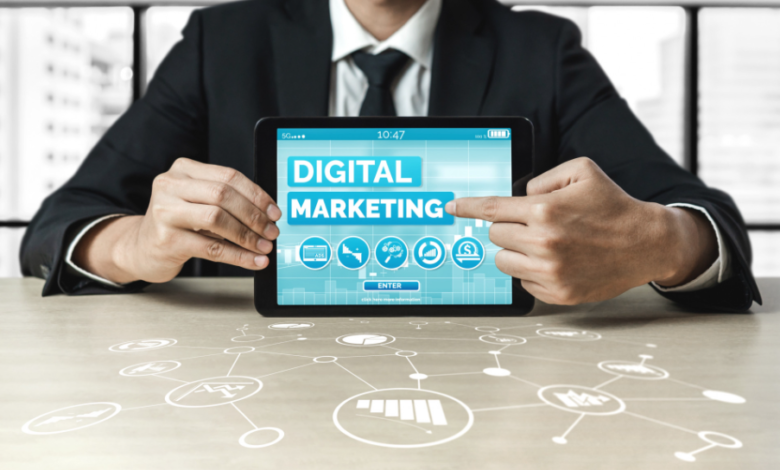How a Digital Marketing Agency Helps Businesses

Adapting to a Digital-First Economy
In today’s fast-changing business landscape, success depends heavily on how effectively a company connects with customers online. As consumers increasingly rely on the internet to research, compare, and purchase products or services, a brand’s digital presence is no longer optional—it’s essential. However, the complexity of online marketing can be overwhelming for many organizations. From search algorithms and social media strategies to paid advertising and analytics, digital marketing involves countless moving parts. This is where partnering with a digital marketing agency becomes invaluable.
A digital marketing agency specializes in helping businesses navigate the online world strategically. Their role goes far beyond simply running ads or managing social media accounts; they provide an integrated approach that combines creativity, technology, and data-driven insight. For companies looking to expand their audience, increase revenue, and strengthen their brand identity, an agency serves as both a guide and a growth partner.
Building a Strong Online Presence
The first step a digital marketing agency often takes is to evaluate a company’s current online presence. This involves analyzing the business’s website, social channels, search visibility, and brand consistency. A well-designed, user-friendly website is the foundation of any online strategy—it’s where potential customers form their first impressions. Agencies assess everything from loading speed and mobile responsiveness to the clarity of calls to action. They then develop plans to optimize the site for both users and search engines, ensuring it not only attracts traffic but also converts visitors into customers.
Search Engine Optimization (SEO) is one of the core services agencies provide to enhance visibility. By optimizing website content with relevant keywords, improving technical performance, and earning backlinks from reputable sources, agencies help businesses climb search rankings. This increased visibility drives organic traffic, reduces dependency on paid ads, and builds long-term credibility. Over time, a strong SEO foundation allows a brand to become a trusted resource within its industry, improving both recognition and profitability.
Crafting a Targeted Marketing Strategy
Digital marketing thrives on precision. A digital marketing agency begins by identifying target audiences—who they are, where they spend time online, and what motivates them to take action. This insight forms the basis of a comprehensive strategy that determines how and where marketing resources should be allocated.
For instance, if a company’s audience spends significant time on Instagram or LinkedIn, the agency might focus on developing tailored social media campaigns to build engagement. If search traffic reveals unmet demand for certain products, the agency can create content or ads that directly address those needs. The benefit of this approach is efficiency: every dollar spent goes toward reaching people who are most likely to convert.
Paid advertising—through Google Ads, Facebook, or other platforms—is another critical area where agencies excel. They manage everything from ad copy and design to audience targeting and budget optimization. Using data analytics, agencies monitor performance in real time and adjust campaigns to improve results continually. This level of precision ensures that businesses get maximum return on investment without wasting resources.
The Role of Content in Business Growth
Content is at the heart of modern marketing, and digital marketing agencies understand how to use it strategically. Whether it’s blog posts, videos, podcasts, or infographics, quality content helps educate, inspire, and attract potential customers. Agencies create content plans aligned with business goals, ensuring every piece serves a purpose—whether building brand awareness, generating leads, or nurturing existing clients.
By using storytelling and expertise, agencies help brands establish authority within their industries. For example, a B2B company might publish case studies demonstrating its success with clients, while a lifestyle brand could leverage visual storytelling to showcase products in action. In both cases, agencies ensure that content is optimized for search engines and distributed across the right channels, amplifying its reach and effectiveness.
Additionally, digital marketing agencies track how content performs. By analyzing engagement metrics such as time on page, click-through rates, and social shares, they gain insights into what resonates with audiences. This continuous feedback loop allows for constant improvement and ensures that marketing strategies evolve alongside consumer behavior.
Digital Marketing Agency as a Growth Partner
One of the most valuable aspects of working with a digital marketing agency is its role as a long-term partner in growth. Rather than focusing solely on short-term campaigns, agencies take a holistic view of a company’s digital ecosystem. They help align marketing initiatives with broader business objectives—such as expanding into new markets, launching new products, or improving customer retention.
An agency’s team often includes specialists across disciplines: SEO experts, graphic designers, copywriters, social media strategists, and data analysts. This multidisciplinary approach provides businesses with access to a range of expertise that would be expensive and difficult to replicate in-house. Agencies also stay up-to-date on emerging trends and technologies, ensuring their clients remain competitive in an ever-changing landscape.
The flexibility of agencies is another advantage. They can scale their efforts according to a company’s needs—ramping up for a product launch or scaling back during slower periods—allowing businesses to maintain agility. For startups and small businesses, this model provides access to high-level marketing capabilities without the overhead of hiring a full internal team.
See also: The Role of lcd panel manufacturers in Modern Display Technology
Leveraging Data and Analytics for Smarter Decisions
Modern marketing is built on data. Agencies utilize advanced analytics tools to track every aspect of a campaign—from where traffic originates to how users interact with a website. These insights go beyond vanity metrics like impressions or likes; they reveal real business outcomes such as lead generation, conversion rates, and customer acquisition costs.
By interpreting this data, agencies can identify what’s working and what needs adjustment. For instance, they might discover that a specific keyword drives high-quality leads or that certain social media posts outperform others. These findings allow them to refine strategies, reallocate budgets, and improve ROI over time.
Perhaps most importantly, agencies translate data into actionable insights. They provide reports that clearly outline progress toward goals, giving business owners a transparent view of performance. This level of accountability builds trust and ensures marketing investments contribute directly to growth.
Conclusion: A Strategic Partner for Modern Success
In a digital-first world, having a strong online presence is no longer optional—it’s the foundation of business success. Yet mastering the many facets of digital marketing requires time, skill, and constant adaptation. Partnering with a digital marketing agency enables businesses to leverage expert knowledge, innovative strategies, and advanced tools that deliver measurable results.
Whether it’s boosting search rankings, crafting compelling content, managing paid campaigns, or analyzing data, agencies provide the strategic direction that turns online visibility into real growth. They not only help businesses reach their audiences but also understand them, creating lasting connections that build trust and loyalty.
For companies seeking to expand, compete, or redefine their brand in the digital era, a digital marketing agency serves as both navigator and engine—transforming online potential into tangible success.




